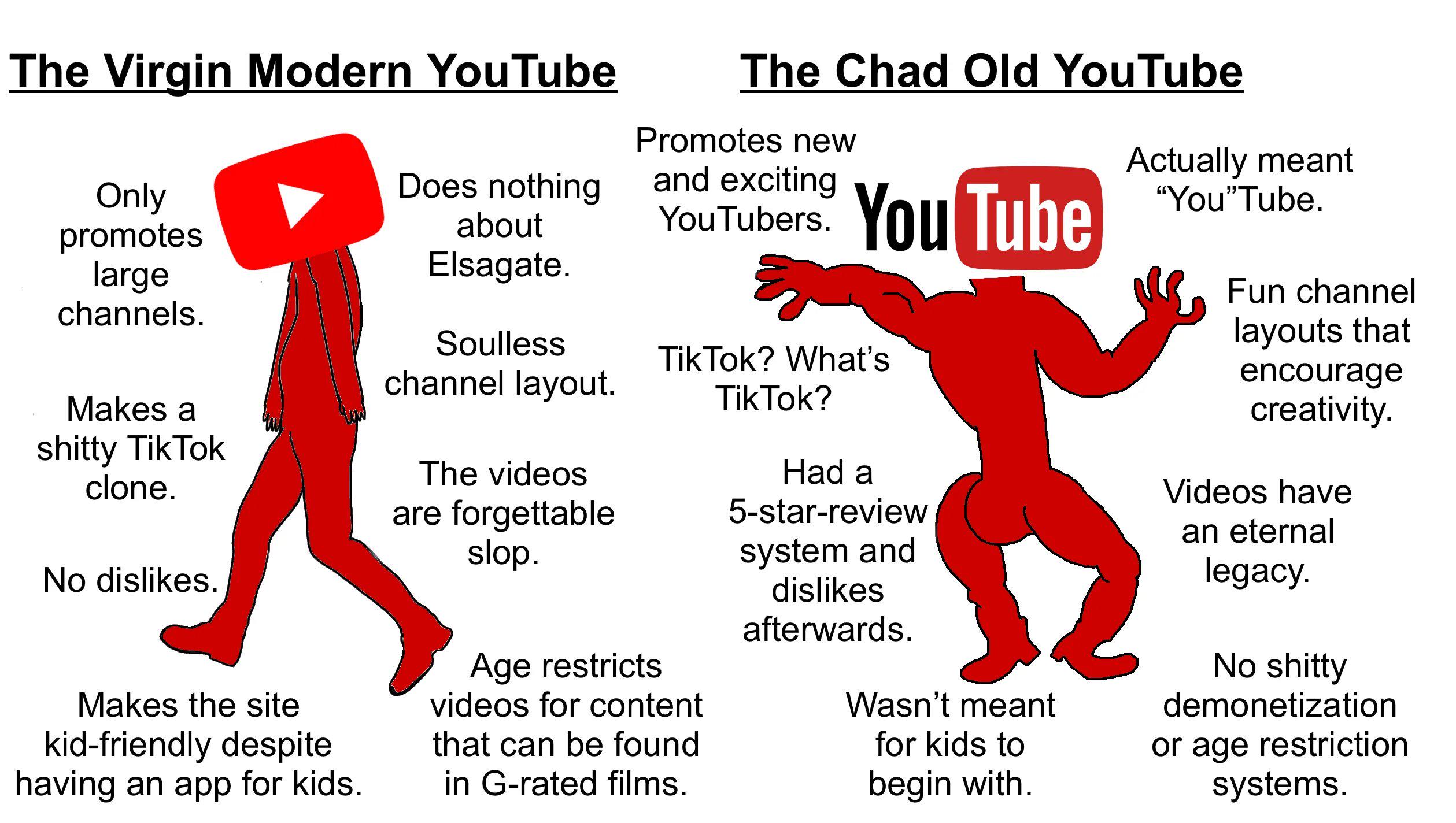this post was submitted on 27 Aug 2024
332 points (94.4% liked)
Enshittification
1731 readers
27 users here now
What is enshittification?
The phenomenon of online platforms gradually degrading the quality of their services, often by promoting advertisements and sponsored content, in order to increase profits. (Cory Doctorow, 2022, extracted from Wikitionary) source
The lifecycle of Big Internet
We discuss how predatory big tech platforms live and die by luring people in and then decaying for profit.
Embrace, extend and extinguish
We also discuss how naturally open technologies like the Fediverse can be susceptible to corporate takeovers, rugpulls and subsequent enshittification.
founded 2 years ago
MODERATORS
you are viewing a single comment's thread
view the rest of the comments
view the rest of the comments

And why are content creators on YouTube? Because it offers the option to monetize as good video creation requires time and effort that you could put into a job otherwise - not only a single person's, mind you. The monetization however only works if money is to be made on users, this wasn't a problem for years because of Google / Alphabet subsidizing YouTube, but in the end, a service should make money either directly or indirectly. And this is what the changes are about. This however is perceived as enshittification, probably even rightfully so - but you can't have a platform paying out the creators without getting anything from the users, be it a subscription fee or delivering ads.
I feel the criticism about this is somewhat misguided here, compared to things like operating systems - Windows has no needed to get worse, it had a sustainable business model, but corporate greed dictated changes for increased monetization. For YouTube, it was clear from the very beginning - or latest when Google bought it - that the business in that form isn't sustainable and that it only exists to accumulate users until they decide it's time to get an RoI.
Google has invested a shocking amount of money into the platform, both to make it attractive to (professional) content creators, but also on a technical front - the amount of data they store, process and deliver is unimaginable.
I'd love it to be different, but I totally understand why this is happening, and see it rather as a turn towards an honest business; and if alternatives ever have a chance, it's during times like these. Before, YouTube couldn't be defeated because of virtually unlimitedly deep pockets of Alphabet.
I don't think we'll see commercial rivals to this as the investment is very high, but maybe a surge of Peertube or similar comparable to what Mastodon and Lemmy are to their respective services.
You made some good points and I agree, that YouTube has to make money. It is a business after all. Still some decisions make it shittier than it was before for consumers and creators (imo at least):
I am not a content creator myself, but the current algorithms and model seem to make it hard for new creators to get any attention and monetize their content.
On the other hand, I feel the UX for consumers gets worse, especially since it is harder to find new, widely unknown content. But I don't know if it is better for subscribers, since I never subscribed.
Still I hope any competitor arises, may it be peer tube or some other platform. But you are probably right, without a big investment that is not going to happen soon.
It's true, but it's still enshittification because they offered one quality of service and then downgraded it to another level entirely. Many companies have done this and I'd even say that it's planned enshittification. You start out by providing something financially unsustainable, such as (relatively) ad-free high-quality video streaming. You do it so well that you drive everyone else out of business. THEN you either raise prices or force more ads and tracking.